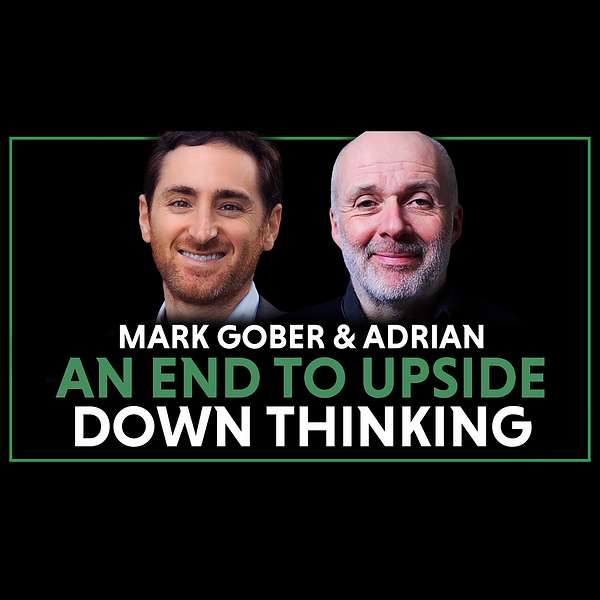
The Principles Podcast
If you look deeply into something for long enough, with an enquiring mind and well thought out questions, you start to notice things. You notice patterns in the thing you are observing, be it behaviours, thoughts, or events; that create results, these may be good, bad, or indifferent. This is part one: pattern recognition.
When you find results that are pleasing to you, you can work out many of the elements of the patterns. If you repeat the same pattern in the same way (with the same mindset and beliefs, i.e. the ingredients), you should be able to consistently achieve similar results. Sure, it may take some trial and error as you get it all down pat, but you will get results. It’s similar to making a cake, playing the piano, learning to draw, or driving a car… you get the picture. We learn most things by first observing them, and then copying or mimicking them. This is part two: pattern implementation.
Once you’ve gained some level of competency then you can start to mix it up a little, or a lot. Starting to create your own patterns, your own recipes, your own music. Creating your own combinations can get some very exciting results, all by trial and error (and fun). This is part three: pattern creation.
Success leaves clues
I’m going to define success here as: getting what you want, when you want it, and enjoying the process. To get the results you want you can try, try, and try again until you get it (this is admirable but it can be exhausting, frustrating, and exhilarating all at the same time)… OR you can use a much faster approach, one that can compress time.
Simply study the best men and women in the subject that you want to become competent/a master in. Immerse yourself in the subject, and get into their mindset deeply. Try to tease out the core organising principles that guide them and their behaviours. Discover the strategies that they developed as they created their own patterns to achieve success. Learn their patterns, copy them precisely, and you can’t help but get similar results.
Reading their books can be a powerful way of doing this. Another is interviewing them and asking questions, which is where I come in.
So, what does this have to do with you?
Our mission is to bring you people, products, and services that help to enrich and improve your life in two primary areas:
- Your health – both mental and physical, since they are intertwined
- Your relationships – with others AND yourself (something that is often neglected)
As part of this, we will be reaching out to people who I think have great principles and strategies to share. People who are real masters of their craft. I will invite them onto the podcast so we can discuss their core principles and strategies which have shaped their decisions and lives. Some of them will be well known, but others may not be… I’ve learned some truly valuable things from some very humble and private people, as I’m sure you will have as well.
I know that the things we will discover along this journey will serve me. Massively. I hope you will join me in this experience so that they can serve you as well.
The Principles Podcast
An End to Upside Down Thinking
Use Left/Right to seek, Home/End to jump to start or end. Hold shift to jump forward or backward.
Mark Gober is the author of “An End to Upside Down Thinking” (2018), which won the IPPY award for best science book of the year. He is also the author of “An End to Upside Down Living” (2020), “An End to Upside Down Liberty” (2021), “An End to Upside Down Contact” (2022), “An End to the Upside Down Reset” (2023), and “An End to Upside Down Medicine” (2023); and he is the host of the podcast “Where Is My Mind?” (2019). Additionally, he serves on the board of Apollo 14 astronaut Edgar Mitchell’s Institute of Noetic Sciences. Previously, Gober was a partner at Sherpa Technology Group in Silicon Valley and worked as an investment banking analyst with UBS in New York. He has been named one of IAM’s Strategy 300: The World’s Leading Intellectual Property Strategists. Gober graduated magna cum laude from Princeton University, where he wrote an award-winning thesis on Daniel Kahneman’s Nobel Prize–winning “Prospect Theory” and was elected a captain of Princeton’s Division I tennis team.
We are talking about the nature of reality and his first book: An End to Upside Down Thinking, Mark Gober traces his journey – he explores compelling scientific evidence from a diverse set of disciplines, ranging from psychic phenomena, to near-death experiences, to quantum physics and beyond. With cutting-edge thinkers like two-time Nobel Peace Prize nominee Dr. Ervin Laszlo, Pixar founder and two-time Academy Award winner Loren Carpenter, Chief Scientist at the Institute of Noetic Sciences Dr. Dean Radin, University of Virginia professor Dr. Ed Kelly, and New York Times bestselling author Larry Dossey, MD supporting this thesis, this book will rock the scientific community and mainstream generalists interested in understanding the true nature of reality.
Marks website https://markgober.com/
The interview with Dr Bruce Greyson from the University of Virginia on Near Death Experiences.